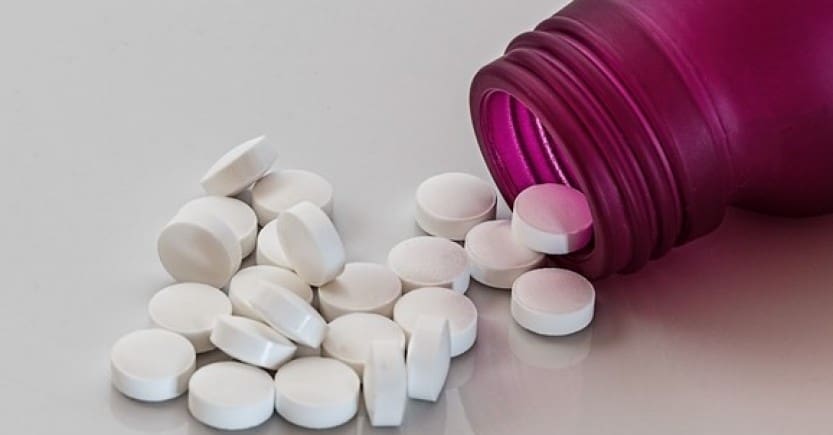ADHD Treatment: Taking the Road Most Travelled
Prescription drugs are the most common approach to Attention Deficit Hyperactivity Disorder. Stimulants such as methylphenidate (i.e., Ritalin) and amphetamines (i.e., Adderall) are widely used. More recently, non-stimulant medications have been also prescribed for ADHD; Strattera is one of the most popular.
Medication for ADHD is intended to reduce hyperactivity and impulsivity, and improve academic performance, work production, concentration, and focus.
Response to medication and the ability to tolerate side effects to medications vary for different children or adults. A trial and error approach is often needed to find which medication may help the most.
Note: Long-term safety for these medications has not been established for children.
What are the side effects of ADHD medications?
The National Institute of Mental Health reports the following issues with potential side effects of drugs prescribed for ADHD:
Most commonly reported. The most commonly reported side effects of stimulant medications are decreased appetite, sleep problems, anxiety, and irritability. Some children report mild stomachaches or headaches. Most side effects are minor and disappear over time or if the dosage level is lowered.
Decreased appetite. Be sure your child eats healthy meals. If this side effect does not go away, talk to your child’s doctor. Also talk to the doctor if you have concerns about your child’s growth or weight gain while he or she is taking this medication.
Sleep problems. If a child cannot fall asleep, the doctor may prescribe a lower dose of the medication or a shorter-acting form. The doctor might also suggest giving the medication earlier in the day, or stopping the afternoon or evening dose. Adding a prescription for a low dose of a blood pressure medication called clonidine sometimes helps with sleep problems. A consistent sleep routine that includes relaxing elements like warm milk, soft music, or quiet activities in dim light, may also help.
Less common side effects
Some children develop sudden, repetitive movements or sounds called tics. Changing the medication dosage may make tics go away.
Some children also may have a personality change, such as appearing “flat” or without emotion. Talk with your child’s doctor if you see any of these side effects.
Some kids report feeling slightly different or “funny” on stimulant drugs.
Preschoolers are more sensitive to the side effects of methylphenidate, and some may experience slower than average growth rates. Very young children should be closely monitored while taking ADHD medications.
FDA warning on possible rare side effects
In 2007, the FDA required that all makers of ADHD medications develop Patient Medication Guides that contain information about the risks associated with the medications. The guides must alert patients that the medications may lead to possible cardiovascular (heart and blood) or psychiatric problems. The agency undertook this precaution when a review of data suggested that ADHD patients with existing heart conditions had a slightly higher risk of strokes, heart attacks, and/or sudden death when taking the medications. Recently published studies, however, have not found evidence that using stimulants to treat ADHD increases the risk for cardiovascular problems.20,21
The FDA review also found a slight increased risk, about 1 in 1,000, for medication- related psychiatric problems, such as hearing voices, having hallucinations, becoming suspicious for no reason, or becoming manic (an overly high mood), even in patients without a history of psychiatric problems. The FDA recommends that any treatment plan for ADHD include an initial health history, including family history, and examination for existing cardiovascular and psychiatric problems.
Special warning on Strattera
Studies show that children and teenagers who take atomoxetine (Strattera®) are more likely to have suicidal thoughts than children and teenagers with ADHD who do not take it. If your child is taking atomoxetine, watch his or her behavior carefully. A child may develop serious symptoms suddenly, so it is important to pay attention to your child’s behavior every day. Ask other people who spend a lot of time with your child to tell you if they notice changes in your child’s behavior. Call a doctor right away if your child shows any unusual behavior. While taking atomoxetine, your child should see a doctor often.
Advice from ACN Latitudes
Our organization usually recommends that families explore nondrug approaches to ADHD before resorting to medication due to the potential for side effects. This is particularly important when dealing with children for whom long term safety of ADHD drugs has not been established.
Depending on the severity of symptoms, ADHD behaviors can have significant consequences for children and adults. School work, careers, relationships, and self-esteem can be negatively affected. We suggest that when there is an environmental or lifestyle issue that can be addressed with positive results, it is better to focus on that rather than simply cover up symptoms with medication. However, there are some cases where medication may be needed. Use of integrative approaches can often reduce the amount of any medication required.









